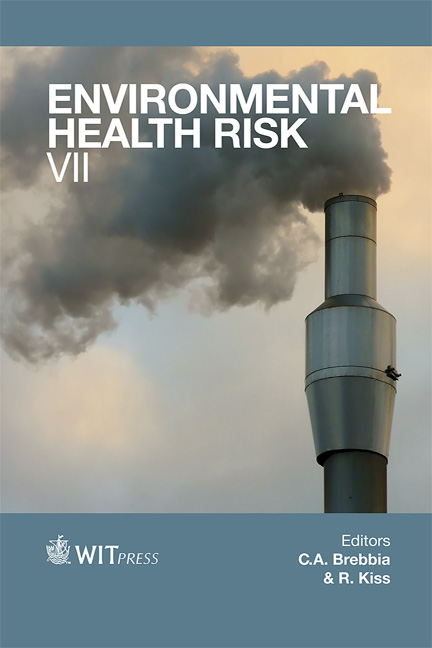Purification Capability Of Broccoli To Gaseous Ethyl Alcohol Using An LED Lighting System
Price
Free (open access)
Transaction
Volume
16
Pages
12
Page Range
119 - 130
Published
2013
Size
904 kb
Paper DOI
10.2495/EHR130111
Copyright
WIT Press
Author(s)
T. Oyabu
Abstract
Plants have various kinds of functions. One of them is a purifying function to gaseous contaminants including carbon dioxide. It is a noticeable function from the standpoint of protection of the global environment. Plants can purify not only carbon dioxide but also nitrogen oxide and sulfur oxide, and the chemicals are used as a source of energy after having been broken down in the plants. In addition, plants put out a bioelectric potential which changes depending on the environment and growing conditions. In this study, the relationship between the potential and purification capability of a plant is examined using an LED lighting system. Broccoli is adopted as a subjective plant and the experiment is carried out with five kinds of LED light frequencies including darkness. The summation value is adopted as the potential value, namely the total amount of the bioelectric potential for a minute (vm1). As a result, the capability increases and the potential also becomes greater in blue light. A positive correlation is recognized in the relationship between the potential and the capability. A specific gaseous chemical could be purified in a particular light-frequency by applying the results of this study. Keywords: plant bioelectric potential, air pollution, purification capability.
Keywords
Keywords: plant bioelectric potential, air pollution, purification capability.





